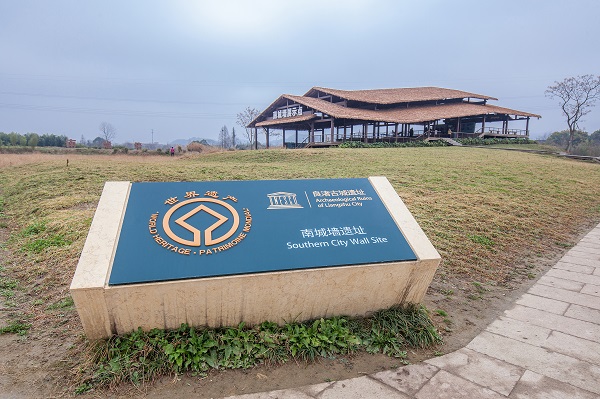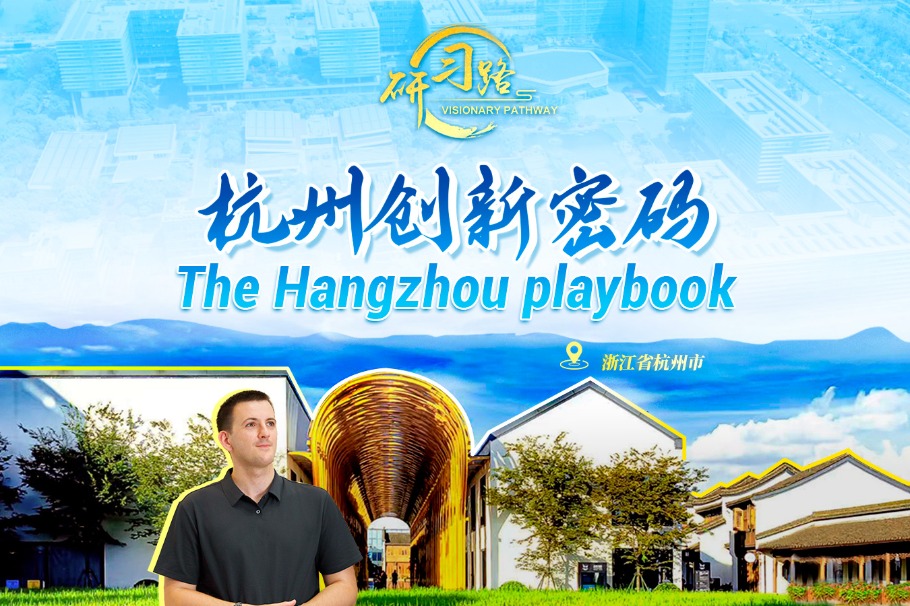Young conservationist give 5,000-year-old Liangzhu Ruins a 'skincare routine'
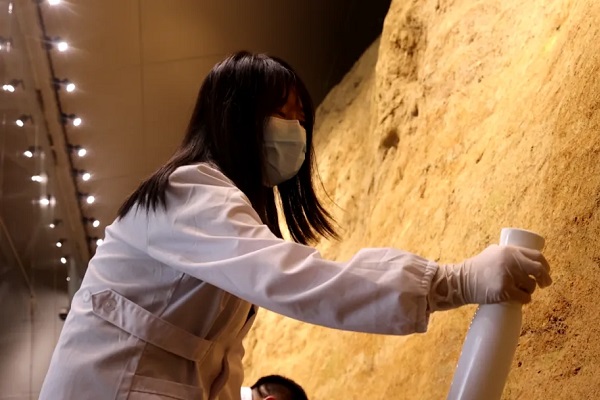
Guo Haiyan sprays natural plant essential oils on exposed earthen sections. [Photo/WeChat account: yhqxwb]
At the monitoring center of the Archaeological Ruins of Liangzhu City in Hangzhou's Yuhang district, a group of young cultural conservationist in their 20s and early 30s are devoted to protecting the 5,000-year-old archaeological site — affectionately calling their work a "skincare routine".
At the Tiger Hill Dam ruins, they work inside glass enclosures wearing protective gear, carefully spraying natural plant essential oils on exposed earthen sections to control moss and mold.
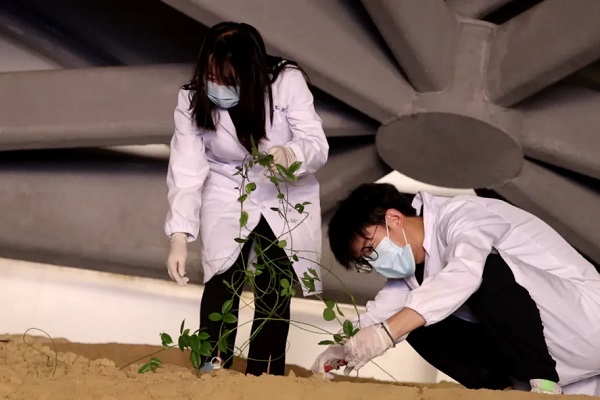
Guo and her teammate clean vegetation. The plants release acidic materials that are erosive to the earth. [Photo/WeChat account: yhqxwb]
"The humid environment helps preserve the site's surface texture, but also fosters biological growth," explained Gao Haiyan, head of the conservation team. "Our job is to strike a balance — to keep the ruins breathing yet slow their aging."
Their laboratory, the first in China dedicated to soil heritage conservation in humid regions, functions like a clinic for ancient sites — diagnosing problems and experimenting with innovative preservation treatments.
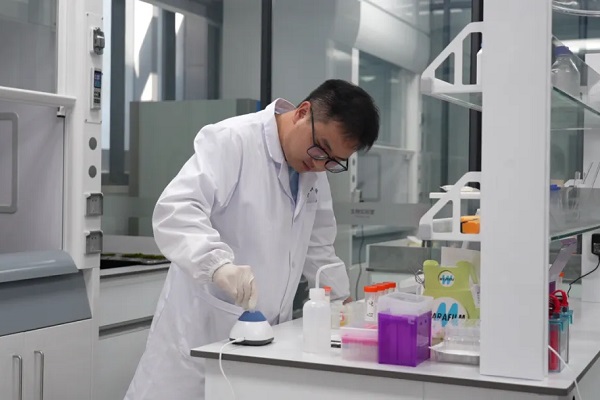
A team member tests a new inorganic nano-particle antibacterial material, which promises longer-lasting protection than natural oils. [Photo/WeChat account: yhqxwb]
Founded in 2022, the Liangzhu conservation team consists mainly of young professionals in fields such as cultural conservation, geotechnical engineering, chemistry, and archaeology. Gao calls their work preventive care — treating not the damage already done, but the risks that could appear in the future.
As the 3rd Liangzhu Forum approaches, Gao and his colleagues hope their experiences can inspire similar projects worldwide. "Protecting history and culture is a shared responsibility across civilizations," Gao said. "We want Liangzhu to live on for another 5,000 years."
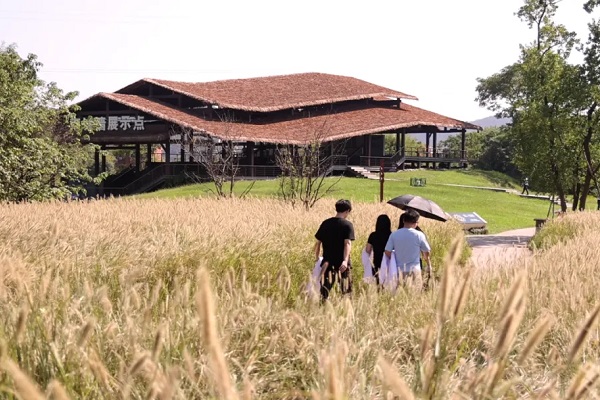
Team members carry out field studies at the site. [Photo/WeChat account: yhqxwb]
-
3rd Liangzhu Forum to be held in Hangzhou from Oct 18-20
October 11, 2025
-
Hangzhou sees tourism boom during National Day, Mid-Autumn holidays
October 9, 2025
-
Hangzhou rolls out cultural, tourism perks
September 29, 2025
-
Visionary Pathway - Hangzhou Playbook
July 15, 2025


